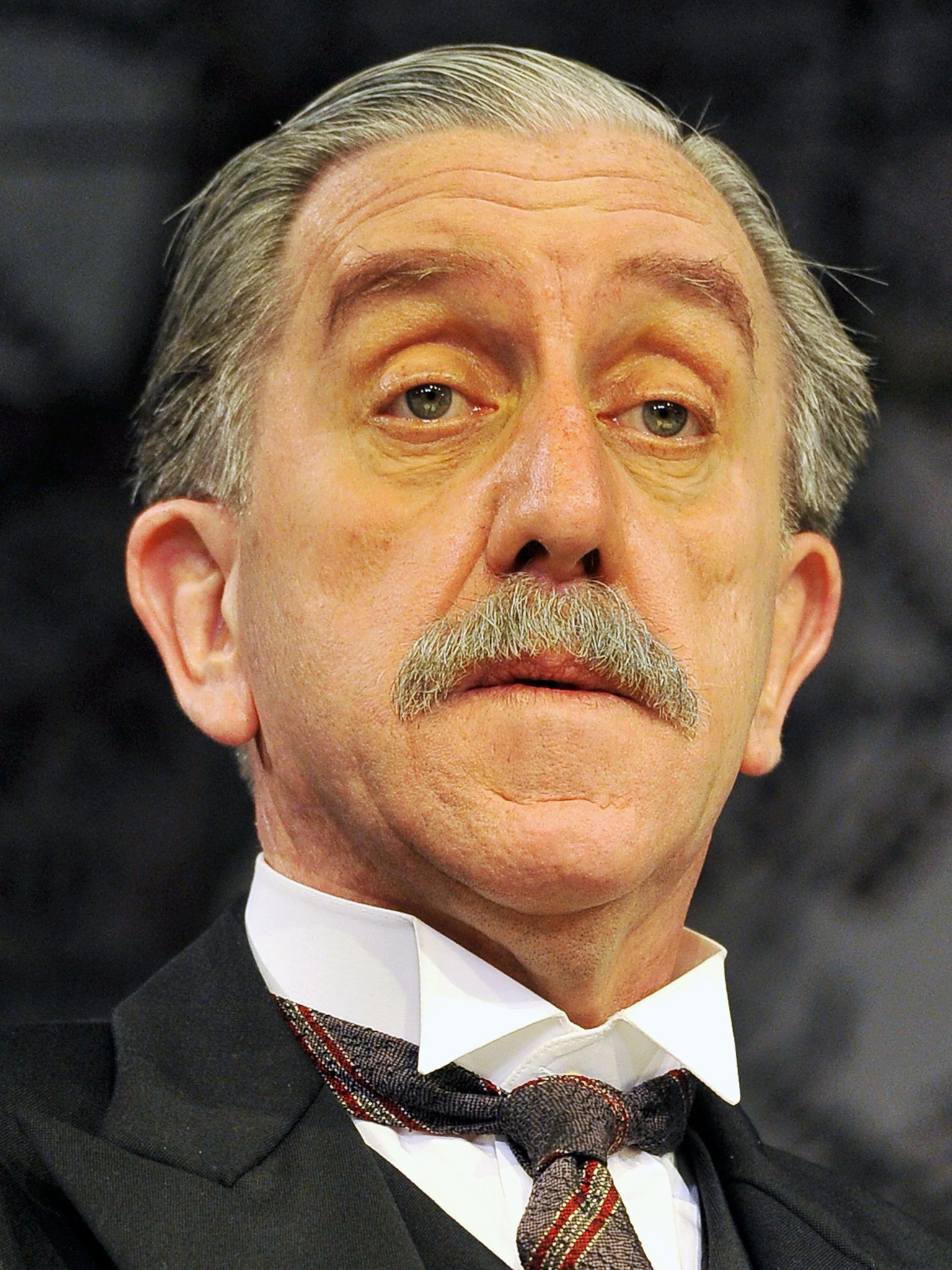Robert Demeger: Stalwart of the Royal Shakespeare Company and National Theatre who made an impressive Lear at the Almeida

Although Robert Demeger played some challenging leading roles, including an acclaimed King Lear for director Deborah Warner early in his career, and went on to cover an impressive range of work on screen and on stage in the West End as well as for both the National Theatre and the Royal Shakespeare Company, he was always happy to describe himself, with characteristic self-deprecation, as "a jobbing actor".
He was a devoted family man, who perhaps lacked the core of steel required for major stardom, and always responded best to an ensemble atmosphere. His work was distinguished by his respect for the text – whether it was Shakespeare or a bread-and-butter episode of a TV cop series – and this shaped him into a special actor, greatly admired by fellow performers and directors alike.
Born and educated in leafy South-east London, Demeger was a bright boy (always impressively well-read) and was drawn during a happy childhood to the stage; after training at the Central School of Speech and Drama he was, from the outset of his professional career, in considerable demand.
He came to feature strongly in the early work of Warner, a young stage manager who formed Kick Theatre in 1980. In 1985 he took the lead role in Warner's stripped-down, shoestring-budgeted King Lear at the Almeida theatre. With a set consisting of three stepladders against a bare brick wall, the focus was on the small cast (Cordelia and the Fool were doubled) throughout, with Demeger particularly impressive in the storm scenes as Lear's mind unravels.
Classical work in many fine RSC performances included a Friar Laurence of measured gravitas in Michael Bognanov's modern-dress, West Side Story-goes-to-Verona take on Romeo and Juliet at Stratford in 1989. Back at the Almeida, Demeger stood out as another churchman, Friar Jacomo, in an early London production from Michael Grandage in a rare revival, steeped in irony, of Marlowe's Jew of Malta (1999).
In commercial theatre he took on no less than three separate stints in the clammily atmospheric version of Susan Hill's The Woman in Black at the Fortune Theatre. His richly resonant voice and ability to inhabit characters tuned in to different frequencies were highly effective in the role of Arthur Kipps who, in this chilling play-within-a-play, recalls the time he spent investigating a dead woman's affairs in a mysterious remote house. Demeger delivered some fine work on at the National Theatre, too, playing an unusually tough-minded Shamrayev opposite Judi Dench in The Seagull (1994) and he also contributed a delightfully vivid sketch of Mr Ablett in Pinero's valentine to the Victorian stage, Trelawny of the Wells (1993).
Some later RSC performances were in less-than-ideal productions. In a strong company, Demeger was one of the few to emerge unscathed from a wildly overlong, clumsily designed and underlit version of Les Enfants du Paradis (Barbican, 1996) as Anselme Deburau, father of the great mime artist.
Three Days in May, Ben Brown's absorbing scrutiny of the crucial war cabinet meetings shortly before Dunkirk (Trafalgar Studios, 2011), gave Demeger a rich opportunity as Neville Chamberlain. He took over at short notice when an ailing Simon Ward had to withdraw late in rehearsals and, unfazed, was soon word-perfect. As the former prime minister he particularly impressed in one strong scene, when, playing beautifully opposite Jeremy Clyde's appeasement-minded Lord Halifax, he comes to realise how Hitler had hoodwinked him.
Final stage work was back at the National Theatre with a less-than-rewarding supporting role, to which he still brought all his commitment and invention, in a hectic revival of The Captain of Kopenick (2013). Finally, in a fittingly outstanding valedictory, he was a deeply affecting Duke alongside Adrian Lester and Rory Kinnear in Nicholas Hytner's production of Othello (2013).
On television Demeger appeared in virtually all the major series of his era including Wycliffe, Inspector Morse, Holby City and The Thin Blue Line; in The Bill alone he played four different characters between 1992 and 1998. He thoroughly relished his experience in one of the most spectacularly ambitious episodes of Doctor Who – playing another divine – in the Elizabethan-set "The Shakespeare Project" (2007). In the first series of The Hour (2011) he gave a haunting performance as the father of Ben Whishaw's crusading TV journalist.
On the big screen his best opportunity by far came in Peter Kosminsky's fitfully powerful remake of Wuthering Heights (1992) with Ralph Fiennes and Juliet Binoche; Demeger was excellent as Joseph, servant to Earnshaw and then Heathcliff, bringing a touch of slightly self-satisfied piety to the character.
During his time in Othello Demeger was diagnosed with glioblastoma multiforme, the most aggressive form of brain cancer, but insisted on appearing until too ill to continue. After conventional chemotherapy he became the first European patient to try a new immune therapy, using a personalised vaccine, following its clinical trials in the US ("Anything that gives me, but also others, a better chance, is worth taking part in").
He underwent some months of treatment at King's College Hospital with characteristic spirit before it became clear that in his instance it had not worked.
Robert Demeger, actor: born London 1951; married (one son, one daughter); died London 14 September 2014.
Join our commenting forum
Join thought-provoking conversations, follow other Independent readers and see their replies
0Comments